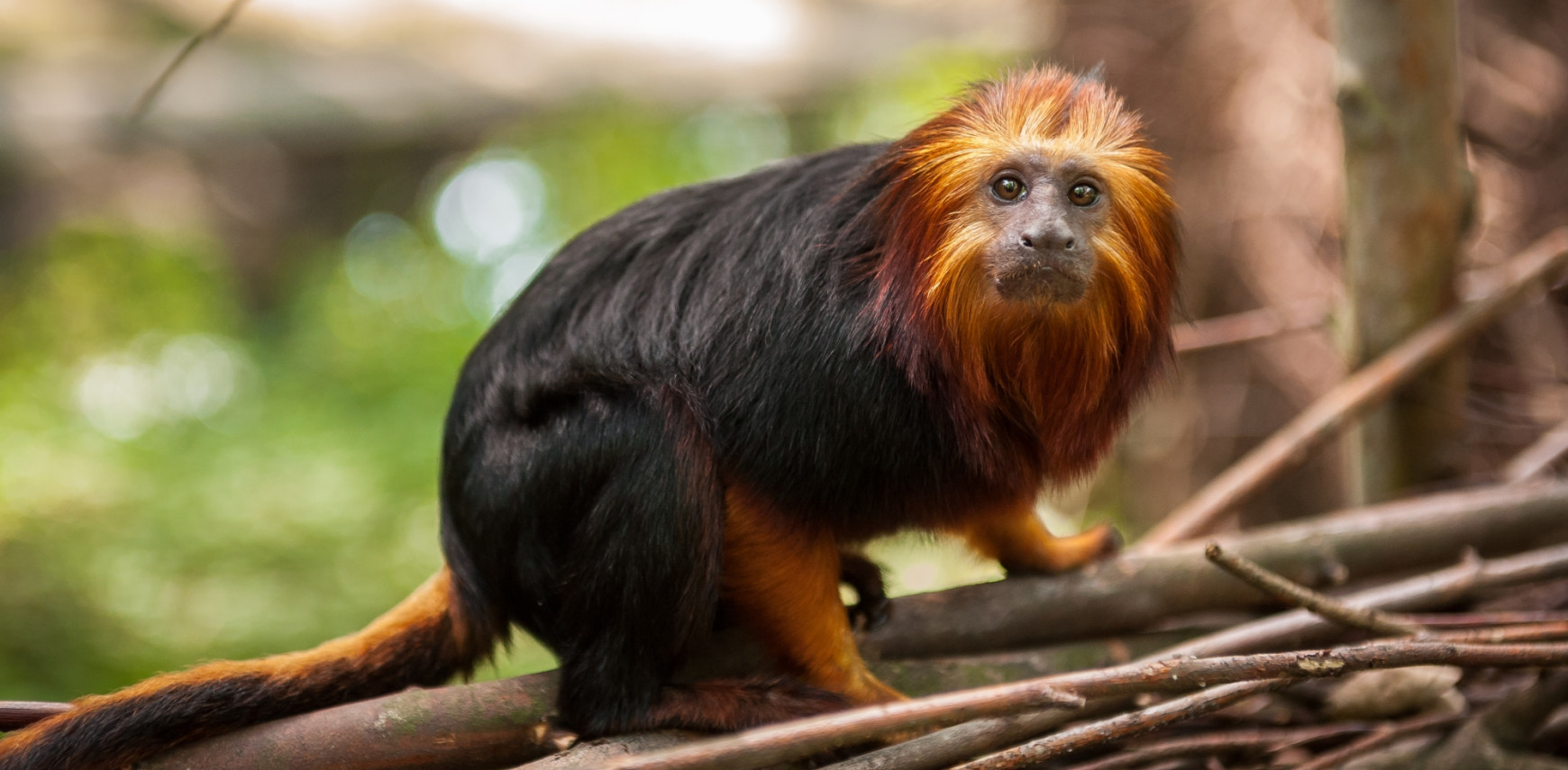Championing for the climate
Antwerp ZOO and Planckendael ZOO are championing for the climate. In collaboration with the Flemish technical research organisation VITO, we recently launched a new research project focusing on the climate and biodiversity. We develop new data tools and models to make climate data available for research into the impact of climate change on golden-headed lion tamarins in Brazil. This new project is part of a European initiative that collects climate data and makes it available to researchers. Our zoos’ Centre for Research and Conservation (CRC) contributes to the development, optimisation, implementation and distribution of these data tools to a wide range of institutes and researchers working on climate change and biodiversity issues. We hope that the research results will also enable us to predict how the Brazilian forest will change. This information can in turn be used to develop a Conservative Action Plan for the monkeys and the forest they live in.
BACKGROUND
On 1 March 2019, the Centre for Research and Conservation (CRC) of Antwerp ZOO and Planckendael ZOO launched a new project in which we aim to use long-term climate data to simulate climate change and its impact on the survival chances of golden-headed lion tamarins. Antwerp ZOO and Planckendael ZOO's 'BioBrasil' project has been running in the Atlantic coastal forest of South Bahia in Brazil since 2002. As international studbook holders, we manage the global zoo population from Antwerp but we also seek to play a more significant role in protecting the species in the wild. Climate change and the disappearance and fragmentation of their natural habitat due, among other things, to deforestation, are threatening the survival of golden-headed lion tamarins. Besides for the animals themselves, their disappearance would also be a disaster for this green lung as the monkeys disperse the seeds of more than twenty tree species in the forest, thus preserving the forest themselves.
This new project is part of the Copernicus Climate Change Service, a European initiative that collects climate data and makes it available to researchers. In recent decades Europe has invested heavily in the acquisition, production and storage of large volumes of environmental data with the aid of information from satellites, in-situ measurements and the climate model output. The Copernicus programme now makes this data available on a centralised platform, the Climate Data Store.
Given the growing concerns about the impact of climate change, professionals in various sectors increasingly require access to climate information. This is far from simple, however, as the unprocessed data are often not suitable for immediate use. The Copernicus Climate Change Service offers a unique opportunity to access and use data in the Climate Data Store. Users, who are experts in their field but not necessarily in interpreting climate data, can easily acquire relevant information to use later in their own activities.
This new project is part of a European initiative that collects climate data and makes it available to researchers.
HOW EXACTLY DOES THE PROJECT WORK?
The Flemish technical research organisation (VITO) will work together with Antwerp ZOO, Planckendael ZOO and several other stakeholders to develop new data tools and models to make climate data readily available for research into the impact of climate change on biodiversity. This Copernicus project is closely aligned with the ongoing BioBrasil study in which we are researching the genetic adaptation of golden-headed lion tamarins to climate variables.
Concretely, Antwerp ZOO and Planckendael ZOO will assign a research assistant to this project for two years. The junior researcher will assist with research data collection, co-develop and test the prototype climate model, organise stakeholder workshops and report on the results achieved, which will include writing handbooks and guidelines. The work will take place primarily at the research centre of Antwerp ZOO and is largely computer based. That is to say: collecting and processing existing data, co-developing the model, organising meetings together with VITO. Project Director of BioBrasil, Kristel de Vleeschouwer, is closely involved in the project.
We develop new data tools and models to make climate data available for research into the impact of climate change on biodiversity. The project is closely aligned with the ongoing BioBrasil study in which we are researching the genetic adaptation of golden-headed lion tamarins to climate variables.
WHAT IMPACT DOES THE PROJECT HAVE?
Very concretely, our research team will use the climate data to simulate various scenarios for Brazil and to research the consequences of climate change on the chances of survival of golden-headed lion tamarins. For example, an increase in temperature or a decrease in rainfall can have significant consequences on which species of trees and plants will grow in the coastal forests of Bahia in the future, which will partly determine whether golden-headed lion tamarins have a future in these forests. We hope that the research results will enable us to predict how the forest will change, and that information can in turn be used to develop a Conservation Action Plan for the monkeys and the forests they live in.
In addition, we will contribute to the development, optimisation, implementation and distribution of the data tools to enable other institutes and researchers working on climate change and biodiversity to make use of the Copernicus Climate Change Service. In May 2019, VITO and the CRC will organise a stakeholder workshop at Antwerp ZOO, for which Flemish institutes such as INBO (Research Institute for Nature and Forest ), ANB (Agency for Nature and Forest ), Meise Botanic Garden, Natuurpunt will be invited, as well as many national and international universities. Research coordinators Philippe Helsen and Peter Galbusera will be closely involved in the project at this stage.
Our research team will use the climate data to simulate various scenarios for Brazil and to research the consequences of climate change on the chances of survival of golden-headed lion tamarins.

